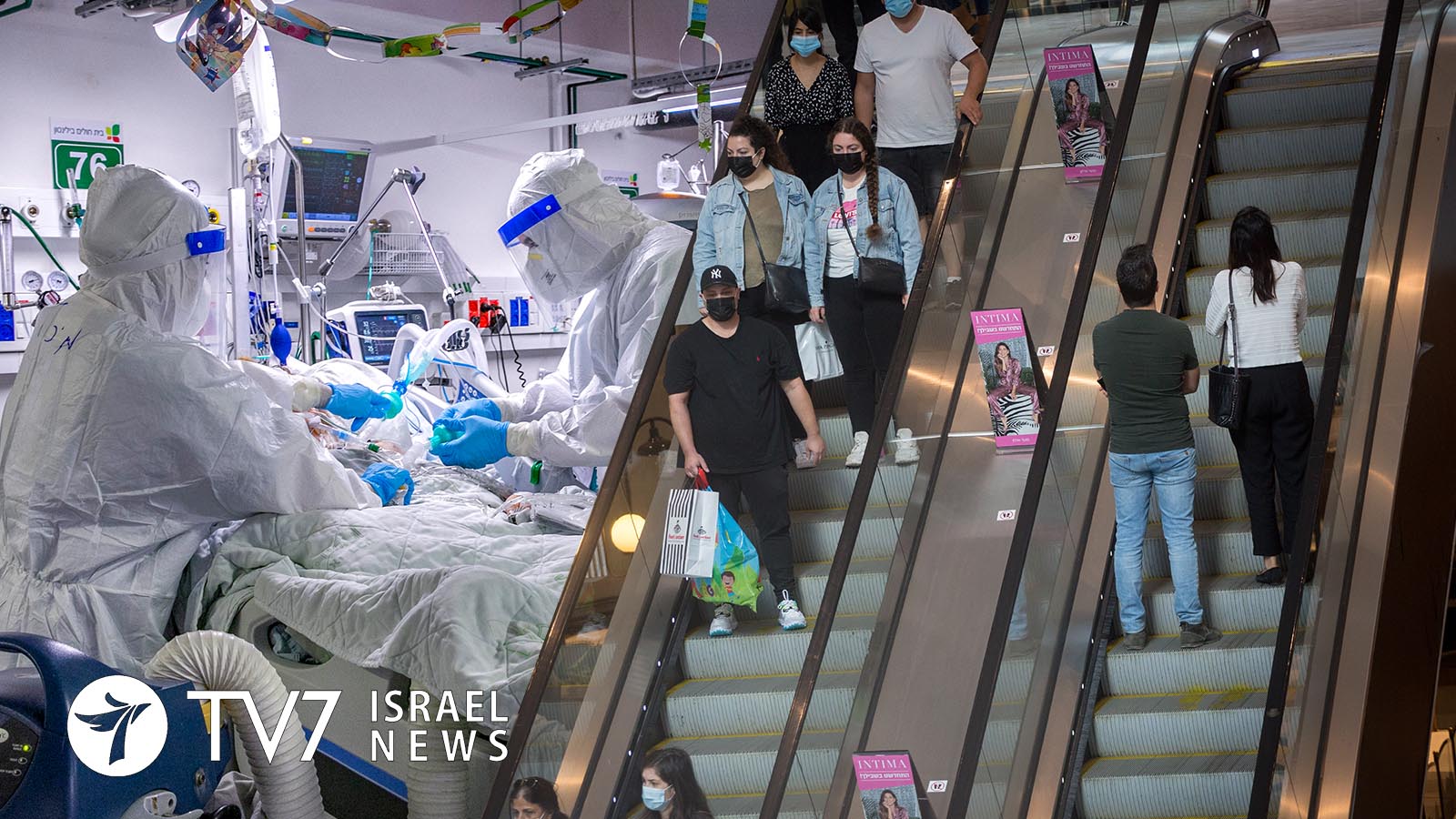The Israeli Ministry of Health reported this morning that 1,069 people tested positive for COVID-19 over the past 24 hours.
The latest data reflects the first time daily virus cases topped 1,000 in over a month.
There has also been a rise to 9,422 infected Israelis as with contagion rate spiked from 1.4% to 1.8% in just 48 hours. 510 of the patients have been hospitalized, with at least 282 in critical condition including 122 on ventilators.
An overwhelming majority of 1,224 patients are registered as residents of Jerusalem. They are followed by 416 in the Arab city of Nazareth, 341 in Haifa, 292 in Tel Aviv, 228 in the Arab town of Umm al-Fahm, 176 in the Bedouin city of Rahat, 172 in the ultra-Orthodox Jewish city of Bnei Brak, 134 in Holon. The remainder live largely Arab sectors.
2,826 Israelis have died since the pandemic broke out.
The surge of the disease comes amid the country’s gradual lifting of restrictions imposed during the second nationwide lockdown.
In addition, the coronavirus cabinet voted to reopen 15 shopping centers and malls for one week starting Friday in what they say is a “pilot” program to test out how these centers would operate under strict health guidelines.
The Coronavirus Cabinet approved the reopening of 15 malls and large shopping centers across Israel tomorrow under strict restrictions as part of pilot program, despite warnings from health officials that the step could facilitate further spread of the virus.
The Coronavirus Cabinet also permitted the return to school of hundreds of thousands of 5th and 6th graders in “green” or “yellow” areas with low morbidity levels two days ago. In accordance with an outline proposed by Minister of Education Yoav Galant, a partial-return of high school students is slated for this coming Sunday, 29 November and middle school pupils a week after that on 6 December. The high schoolers are set to learn in classrooms limited to 50% capacity, while continuing remote studies as well. Grades 7-12 will only study in class 2 days a week, while grades 5-6 will meet 3 times per week at schools.
At the time, Minister Galant pointed out that infection levels remain higher in the ultra-Orthodox Jewish and Arab sectors. While “the morbidity of students in the general sector 28%,” he said, there is a 56% level in the Arab sector, and 13% in ultra-Orthodox Jewish areas.
Another new pilot program will involve the weekly testing of all staff and student bodies in certain locations.
For now, all public gatherings continue to be limited to 10 people inside and 20 outdoors. Celebration of the upcoming week long Hanukah holiday, which begins on 10 December, may be permitted to include two nuclear families, rather than just one as during observance of the High Holidays this past autumn and Passover last spring.
Health authorities are also working with Christian leaders on policies to curb further spread of the virus during celebration of Christmas, both in Israel and the Palestinian Authority city of Bethlehem.
